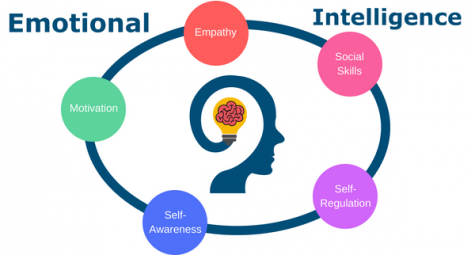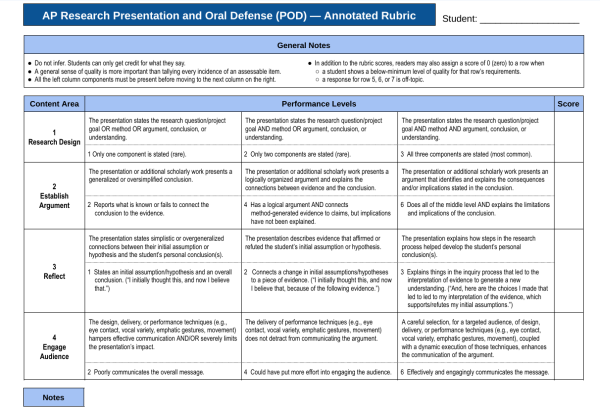How Good Is Your Social Emotional Intelligence?
The Do’s and Don’ts of maintaining healthy relationships
You may jump to dismiss this as a symptom of pertinent social anxiety, but I often think deeply about the ways in which I interact with others, as well as the ways other people perceive and act towards me. Because of this, I have grown increasingly observant of other peoples body language, tone of voice, etc., allowing me to sometimes recognize the underlying emotions that evoke such behaviors or tendencies. I attribute a good portion of this knowledge to the general category of social emotional intelligence, which includes but is not limited to the following: negotiating differences, expressing empathy, identifying and expressing emotions constructively, communicating, collaborating, and persevering amidst all forms of social  interaction. Strength in these areas makes it significantly easier to understand yourself, as well as other people, and in turn provides the foundation for your personal network of healthy, reciprocative, and respectful relationships.
interaction. Strength in these areas makes it significantly easier to understand yourself, as well as other people, and in turn provides the foundation for your personal network of healthy, reciprocative, and respectful relationships.
Research even shows that students who receive formal instruction on social emotional intelligence are overall more positive, less anxious, and better behaved compared with their peers, as such instruction empowers and enables children to effectively communicate and problem solve. These foundational skills even prepare adolescents for success and clarity in their educational endeavors, career pursuits, relationships, and adult life. Not only do social emotional skills statistically improve test performance, but many employers nowadays seek candidates that exhibit well developed social emotional intelligence skills.
Here, I compiled a list of my anecdotal knowledge on this topic to help spread awareness to the magnet student body about how to handle mental fragility, sensitivity, and vulnerability. To break it down, I came up with a little list of “Do’s and Don’ts” that pertain to frequent social situations based on my experiences and personal observations.
- Don’t make someone feel self conscious for something they simply cannot help such as a birth mark or a speech impediment. This even applies to non-tangible insecurities like ones family history or background; if it’s out of someones control, don’t make them feel badly about it.
- Don’t try to compete when it comes to trauma or mental health; recognize how unique and valid every individuals situation is; provide empathy without overshadowing their story with your own. When you can relate, explaining how in a way that makes them feel less alone can be helpful, but don’t compete with the depths of your experiences.
- Don’t unnecessarily bring up triggering subjects such as S/A or ED in an environment that does not foster a sense of vulnerability and safeness or really in any out-of-context situation. More likely than not, you probably know a trauma survivor that has not disclosed their situation with you, and by casually bringing up really sensitive topics, you can inadvertently put them through a lot of emotional stress.
- If you’re standing in a circle with a group of people and someone else comes up to join the conversation, don’t just stand there like doorknobs. Widen the circle and even if that individual isn’t your favorite person, its courteous and inclusive to make room instead of ostracizing them. At the same time, don’t immediately disperse and make things incredibly awkward.
- If someone makes you really truly angry, don’t react immediately; rather, let the feelings marinate and address the problem with more clear and coherent thoughts to avoid saying something you’ll come to regret.
- If a friend comes to you with a serious problem or a personal dilemma, the best thing you can do is listen. Giving unsolicited advice can be interpreted as overbearing, even when it comes from a good place, so you’re better off withholding your opinion and just providing nonjudgmental ears, unless they ask for advice of course. Point being, sometimes less is more when you’re trying to be a good friend.
- If you have plans or a prior commitment and get invited to something else to would rather attend, it’s up to you to weigh the consequences and decide where your priorities lie. Is it worth it? Are you going to hurt the feelings of someone close to you, or is it minor enough that you can handle the damage control?
- If you seem someone noticeably isolating themselves or they just seem kinda out of it, it’s kind and thoughtful to ask how their day is or give a gentle compliment. Don’t pry or make them explain their grievances to you (unless they want to), but sometimes just noticing that someone is having a difficult time can make all the difference.
- If you’re in a relatively deep or intense conversation with someone, stay off your phone. Even if you are still listening, it makes you seem uninterested and closed off from the conversation. Particularly if someone is opening up to you or just in a vulnerable position in general, it’s disrespectful to be distracted and on your phone when they’re trusting you enough to share this.
- If you see or hear something really inappropriate, derogatory, or offensive, you don’t necessarily have to cause a scene, but don’t just let it roll off your back and play dumb. Standing up for someone can look like facing the assailant directly, going to someone trustworthy for advice, or making sure the affected person is safe and okay. If you know in your gut that something you witnessed is morally wrong and causing harm to others, trying to do something is better than not doing anything at all.
- On this note, don’t ostracize someone for standing up for something they believe in, or for standing up to someone who is in the wrong. It takes a lot of courage to stand up about something, especially in large, intimidating social situations, so even if you don’t agree with their assertion or are not confident enough to openly agree, you should at least respect them. Laughing or mocking someone that is trying to do something positive and/or proactive is one of the most toxic things ever.
- If you’re engaged in a conversation with someone, whether its deep or casual, don’t randomly face away from them or look all over the place when they’re talking to you. Conversations are a two way deal; don’t make someone feel awkward by directing your attention to something you deem more important- at least let them finish their thought.
- If you’re in a conversation with someone and they’re telling a story, try your hardest not to interrupt them, even if your comment relates, because one innocent intersection can make them feel unimportant and invalidated.
- If you make a statement about something that is not well received and suddenly claim to be joking, or you claim seriousness after your joke is taken as fact, just don’t; it’s wishy-washy and confusing and makes people less inclined to listen to or trust you.
All in all, you can’t change people, control them, or predict their actions or reactions. Being socially and emotionally conscious can help prevent you obliviously hurting someone or making them uncomfortable, in both casual and professional environments. Think about certain situations that left you feeling unsettled or invalidated- was there something someone said or did to trigger that feeling of inadequacy, even if it was entirely inadvertent? Probably. By recognizing these behaviors in ourselves, we can improve our relationships and interactions with others, and by recognizing them in others, we can better understand their intentions and know how to control our reactions. Hope this helps!












